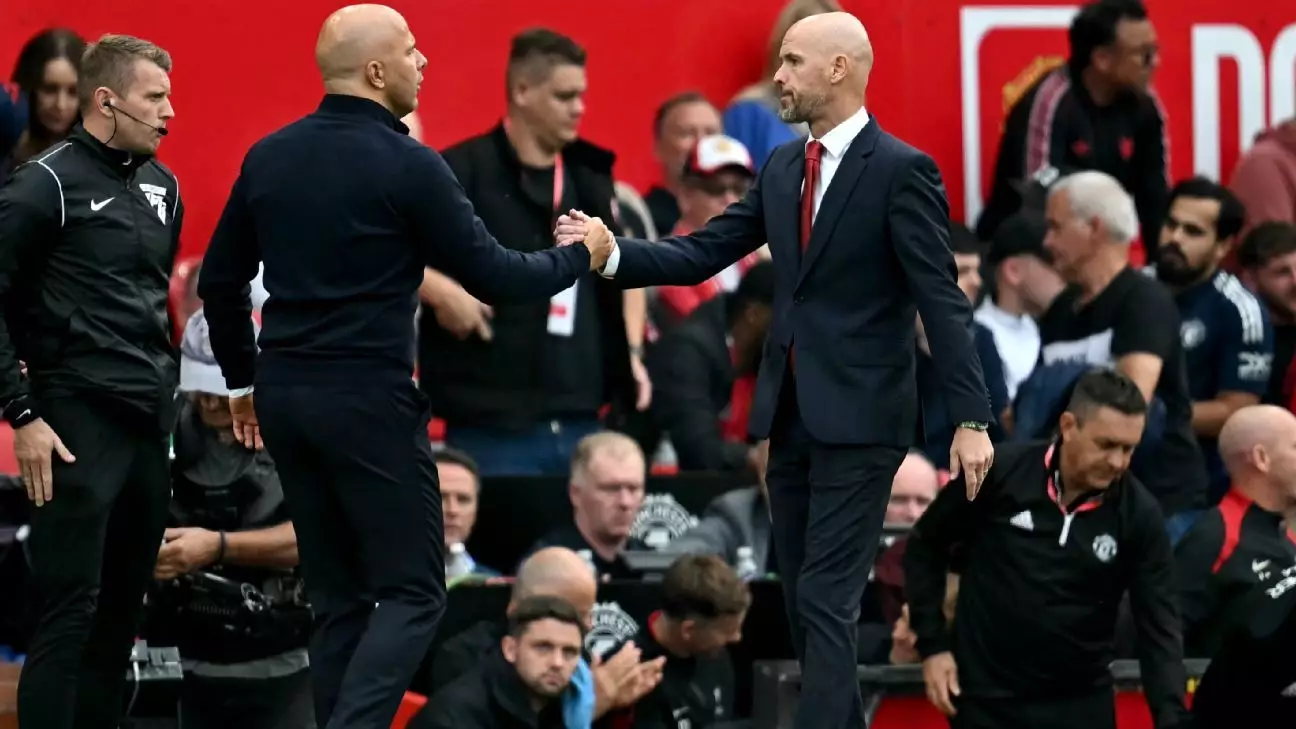Erik ten Hag’s recent sacking from Manchester United has sparked a significant conversation among Premier League managers and pundits alike, illuminating the harsh realities of football management while also reflecting on the broader implications of his tenure at one of the world’s most storied clubs. The responses from fellow managers reveal not only a shared sense of empathy for their colleague but also highlight the increasing pressure and expectations inherent in elite football management.
Liverpool’s coach Arne Slot expressed his disappointment over Ten Hag’s dismissal, emphasizing the personal toll such decisions can take on managers. He articulated a collective sentiment among Dutch managers, emphasizing that while the football world is unforgiving, the sympathy held for Ten Hag reflects deeper professional camaraderie. Slot’s acknowledgment of Ten Hag’s hard work and past successes—specifically his impressive tenure at Ajax—serves as a reminder that managerial competence does not always correlate with organizational stability or success. The Dutch contingent’s comments also underscore the cultural connections and support systems among coaches, particularly those from the same nation who often view each other’s careers through the lens of shared experiences.
The Harsh Realities of Management
Pep Guardiola, head coach of Manchester City, also weighed in on the situation, expressing his sorrow over Ten Hag’s departure. Guardiola highlighted a critical aspect of football management: the cycle of results-driven accountability that differentiates sports from other professions. His remarks touched upon an uncomfortable truth; unlike architects, doctors, or teachers, football managers are directly judged by their immediate successes, leading to a precarious existence where job security is ephemeral. This highlights a systemic issue within the sport that often sidelines long-term strategies in favor of short-term gains, a trend that can be particularly detrimental in an environment as demanding as the Premier League.
Arsenal’s Mikel Arteta also expressed his sadness regarding Ten Hag’s exit, noting the positive changes and trophies Ten Hag brought to Manchester United during his management. Arteta’s tribute underlines an unfortunate reality for managers: success is often overshadowed by the pressures to consistently deliver results. The remarkable highs of winning titles can quickly morph into the agonizing lows of job loss, especially when faced with fierce scrutiny after disappointing performances. Arteta’s remarks serve as both reassurance and a cautionary tale about the volatile nature of football management, reminding us that even the most capable coaches face precarious timelines.
The Inevitable Cycle of Change
Tottenham’s head coach Ange Postecoglou provided a more sobering analysis of Ten Hag’s situation, suggesting that given the intense scrutiny surrounding Manchester United, his dismissal felt “inevitable.” This perspective invites reflection on how managerial tenures are navigated amidst public expectations, club histories, and media pressures. Postecoglou’s comments encapsulate the notion that the relentless pursuit of success erodes the patience often required to foster genuine growth within a team. The inevitability of such dismissals reveals a systemic issue where clubs prioritize immediate performance over long-term vision.
In the midst of this tumultuous managerial landscape, reports indicate that Manchester United is actively pursuing Sporting CP’s coach Rúben Amorim as Ten Hag’s successor. The imminence of this transition underlines the urgent need for stability at Old Trafford, hinting at the structural re-evaluations the club may undergo. Amorim’s potential appointment could provide new hope for Manchester United fans longing for a return to competitive form, yet it also raises questions regarding the sustainability of managerial changes in pursuit of better results. As clubs like United embark on this search for new leadership, the cycle of hope, disappointment, and renewal continues in the high-stakes world of football management.
While Erik ten Hag’s sacking reflects a personal setback, it also serves as a microcosm of larger trends in modern football—where the pressures of achievement often lead to swift, unforgiving decisions. As the football community processes this event, it becomes clear that the maze of managerial challenges remains as complex and labyrinthine as the very clubs they aspire to lead.

